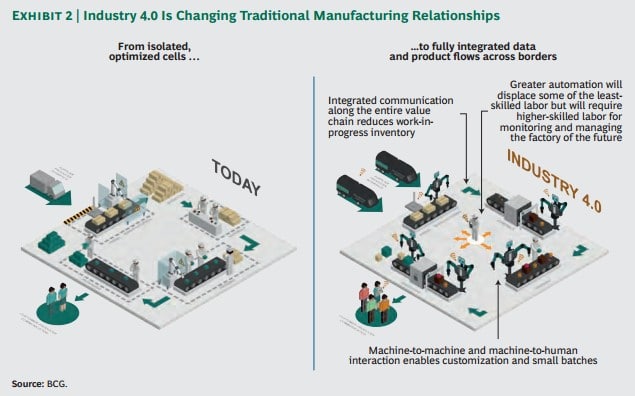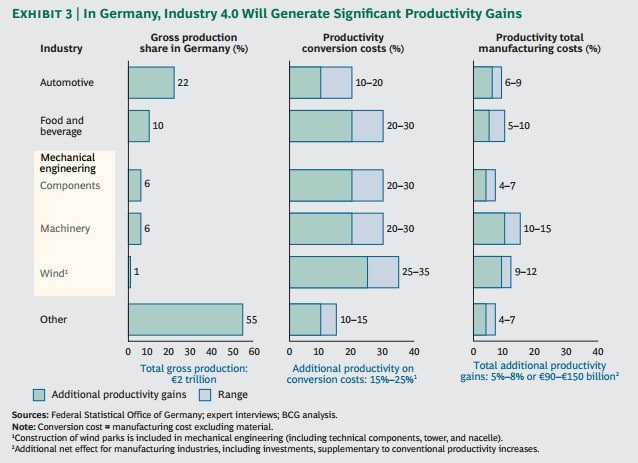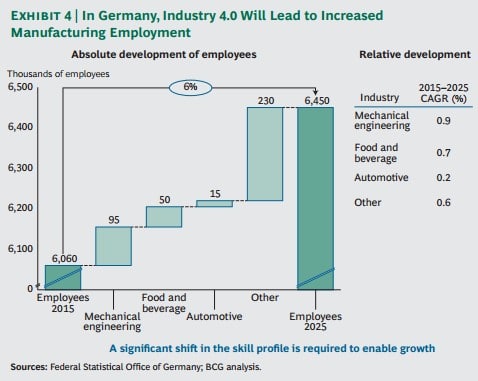 Industry 4.0 is projected to drive productivity gains of 5 to 8% on total manufacturing costs over ten years in Germany, totaling €90B to €150B.
Industry 4.0 is projected to drive productivity gains of 5 to 8% on total manufacturing costs over ten years in Germany, totaling €90B to €150B.
Boston Consulting Group (BCG) projects that Industry 4.0 will contribute 1% per year to GDP over ten years, creating up to 390,000 jobs in Germany alone.
Simulating the machining of parts using data from physical machines has the potential to lower setup times in production by 80%. BCG projects that the ongoing use of machine-to-machine interfaces and analytics will further streamline and increase production accuracy.
These and other insights are from the recently published Boston Consulting Group (BCG) report, Industry 4.0, The Future of Productivity and Growth in Manufacturing Industries (free, no opt-in). Industry 4.0 has the potential to make production systems up to 30% faster and 25% more efficient while also streamlining mass customization globally according to the study.
Additional key take-aways from the study include the following:
- BCG found that nine foundational technologies are accelerating the growth and adoption of Industry 4.0. These nine technologies are shown in the following graphic:
- Industry 4.0 is setting the foundation for manufacturing workflows to move from isolated, optimized cells to fully integrated data and product workflows across the silos of an organization. BCG sees mass customization becoming more efficient, economical and profitable as machine-to-machine and machine-to-human interaction becomes more commonplace.
- BCG estimates that Industry 4.0 will drive a 22% productivity gain in the German automotive industry alone, and 10% in Food & Beverage. The following graphic provides insights into gross production share increase percentages in Germany, productivity conversion costs, and improvements in productivity total manufacturing costs.
- Industry 4.0 will increase employment 6% over the next ten years in Germany alone, with mechanical engineering leading all fields with a 10% increase in employment. The following graphic illustrates BCG’s analysis of how Industry 4.0 will lead to increased manufacturing employment in the forecast period.
- BCG found that industry 4.0 increases productivity in component manufacturing from 4 to 7%, with the greatest cost reductions in logistics (-50%), followed by labor cost, operating costs and overhead (30% each). The following graphic shows the distribution of cost savings BCG provided in their analysis.
- Simulating the machining of parts using data from physical machines has the potential to lower setup times in production by 80%. BCG implies throughout the study that the use of analytics and big data leads to exponential increases in production accuracy, quality and consistency across global manufacturing centers that collaborate.
- Cloud-based platforms are essential for Industry 4.0 to attain its full potential according to BCG’s findings. The study found that manufacturers’ efforts at extending Industry 4.0 globally is being accelerated by cloud platforms that enable increased data sharing across sites, company and national boundaries.








